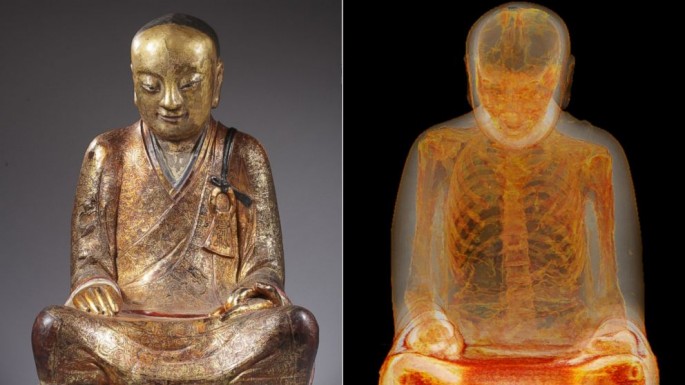Chinese ancient artifact experts discovered that a stolen 1,000-year-old Buddha statue, which is known to contain a mummified monk, is now in the possession of a Dutch private collector.
Fujian Province's Cultural Relic Bureau declared that, based on research and media reports, the millennium-old relic that is now featured in the Hungarian Natural History Museum was indeed the one stolen from the village of Yangchun in Fujian, China, in 1995.
According to the bureau spokesperson, experts have already confirmed this report, but they would gather more information from the village and would conduct further probe on the matter in order to trace the exact origins of the relic.
The statue, which is part of a "Mummy World" exhibition in the Hungarian museum, was set to be displayed from the museum's inauguration in Oct. 2014 until May 17 this year, but had been pulled out by its Dutch owner on Friday for some unknown reason.
"The Dutch owner withdrew the statue without giving any reason," the museum management stated.
The statue's inspiration is a local man named Zhanggong Zushi, who later decided to become a monk when he was in his 20s.
The Yangchun archives revealed that Zhanggong Zushi was able to gain popularity among Buddhism believers after he helped treat diseases and spread the wise words of Buddha.
After he died at the age of 37, believers decided to honor him by mummifying his remains, which was placed inside the Buddha statue between A.D. 960 and 1279, during the reign of the Song Dynasty in China.



























